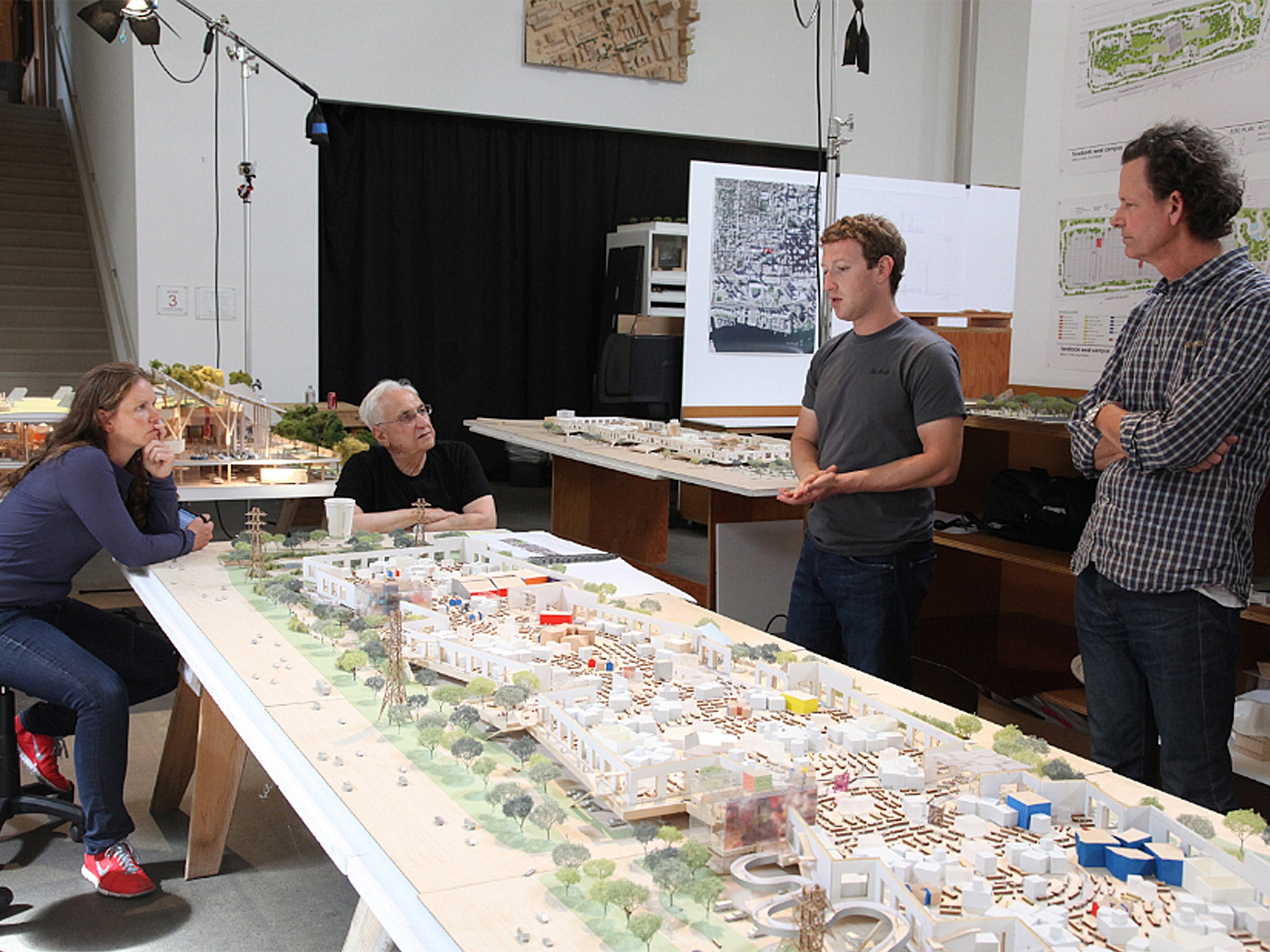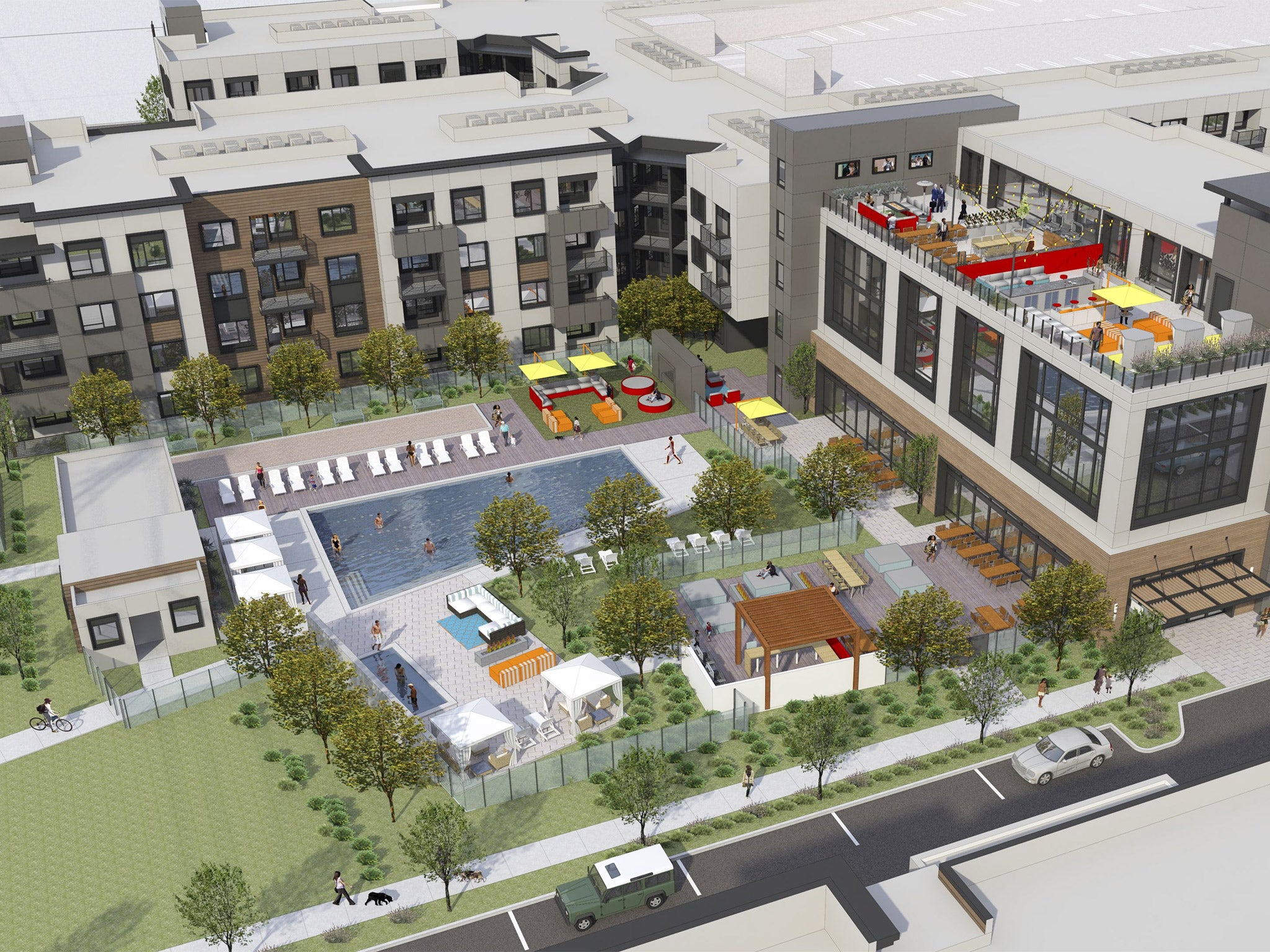Facebook is planning a new company town - but would you want to live so near work?
Company towns aren't a relic of the industrial revolution - they're part of the future of tech firms, with Mark Zuckerberg being the latest entrepreneur with plans to create one for his staff

Your support helps us to tell the story
From reproductive rights to climate change to Big Tech, The Independent is on the ground when the story is developing. Whether it's investigating the financials of Elon Musk's pro-Trump PAC or producing our latest documentary, 'The A Word', which shines a light on the American women fighting for reproductive rights, we know how important it is to parse out the facts from the messaging.
At such a critical moment in US history, we need reporters on the ground. Your donation allows us to keep sending journalists to speak to both sides of the story.
The Independent is trusted by Americans across the entire political spectrum. And unlike many other quality news outlets, we choose not to lock Americans out of our reporting and analysis with paywalls. We believe quality journalism should be available to everyone, paid for by those who can afford it.
Your support makes all the difference.In Britain, company towns tend to conjure up images of model villages set up by Victorian businessmen who were God-fearing enough to know that they had to do right by the workers who made them millions – or they wouldn't be going to heaven. Houses in these places are sought after today. Bournville in Birmingham, set up by the Cadbury brothers between 1893 and the 1920s, and Saltaire in Bradford – developed by the textile-mill owner Titus Salt in the 1850s – are two of the most famous.
Both were revolutionary in their day, created by forward-thinking industrialists at the cutting edge of their fields, although perhaps their inhabitants could have lived without some of the rules of residence: neither place allowed those who lived there to drink alcohol. Salt didn't want his workers getting drunk, while the Cadburys were Quakers.
But company towns aren't a relic of the industrial revolution – they are seen by some as the solution to 21st-century issues of infrastructure, rising house prices and staff retention. Facebook has just spent £250m on 56 acres of land adjacent to its current headquarters in Menlo Park, California, and a stone's throw from the new offices that Frank Gehry is creating.
Although Facebook's plans are still to be finalised, it seems likely that a contemporary company town could be on the cards: offices, shops, a hotel and housing for the social-media brand's worker bees. Certainly, if the firm's blueprints for an apartment block adjacent to Menlo Park – due to be completed next year – is to be replicated on a larger scale, Facebookers can expect bars, pools, spas, pet-walking services, fitness centres and themed entertainment areas.
But will potential residents be clicking the "Like" button when it comes to life in Facebook town? "Facebook's goals are the same as those of industrialists who sponsored earlier company towns: to attract and retain skilled workers, to increase company loyalty and productivity, as public relations about company benevolence and to address local housing shortages," believes Margaret Crawford, professor of architecture at the nearby University of California, Berkeley, and the author of Building The Working Man's Paradise: The Design of American Company Towns.
One of the most frequent questions asked about company towns is: what's the motive? Is it a grand altruistic gesture to build clean, green cities for workers – or a way of stamping authority on the urban environment as well as workers' lives? However, the idea of an employer "owning" its employees by dictating the terms by which they live is outmoded. "I don't think that the company's motives are particularly important – typically they are a mix of benevolence and control," says Crawford.
"My book demonstrates that company towns in general are very ineffective at control and, given contemporary mobility and information flows, would be even less effective today. Given the lack of housing for young tech employees in Silicon Valley – and resulting exodus to San Francisco, gentrification issues, problems with Google buses – it is actually very practical and regionally beneficial for Facebook to sponsor housing near the workplace."

In China, companies often build towns for employees next to factories – one of the most notorious of which is the city of Taiyuan, where Foxconn Technology, a Taiwanese supplier to electronics brands such as Apple, situated one of its plants. In 2012, 2,000 of its 79,000 employees became involved in a riot said to have been sparked by a heavy-handed security guard. Living conditions on the site, where thousands of employees slept in dormitories, were described by one undercover journalist as "a nightmare". Silicon Valley it ain't.
Tata Town, aka Jamshedpur, India, is very different – as it was designed to be from its inception at the start of the 20th century. It has more than a million inhabitants, including the Tata Steel workers who work in its factories. But that's not all – The Economist recently revealed that Tata runs the zoo, the local paper and even a football training academy linked with Sheffield United – aka "the Blades" – another steel town football club.
As with Tata in India, it was coal and steel firms that set up 3,000 company towns in America (such as Andrew Carnegie's steel town at McDonald, Ohio), just as British manufacturers had done from New Lanark in Scotland to East Tilbury in Essex. East Tilbury was Bata Town, where Bata shoes employees lived in cool, modernist blocks. But Claude-Nicolas Ledoux beat all of them with his salt works and town at Arc-et-Senans in France in the 1770s.
The trend spread around the world: Wolfsburg in Germany was set up by Volkswagen, Henry Ford build Fordlândia in Brazil to supply rubber, and in the 1870s Welsh industrialist John Hughes built Hughesovka – which later became Donestk in the now war-torn region of Eastern Ukraine – in the image of a Welsh steel town.
"In some ways, tech companies are the obvious successors to the manufacturing firms which set up the older schemes: building a town is about creating an expression of innovation, power, wealth; it's often about promoting apparently 'new thinking'," says Jacqueline Yallop, author of new book, Dreamstreets: A Journey Through Britain's Village Utopias, which will be published in June. "These days it's probably the tech companies that have the money and vision to think on such an ambitious scale. I think Facebook Town is an intriguing idea, especially if it explores ways of genuinely integrating existing communities with new ones. That's something many of the old company towns failed to do."
There's more than one way to make a company town, though, as the inhabitants of Mountain View, California, can attest. The city's biggest employer is Google, and while other technology companies also have offices there, none of them have signed a deal for their own airport, as the search-engine giant did last year. According to research carried out by theverge.com, in 2013, Google owned 10.7 per cent of the city's taxable property and owns or leases almost every office in the North Bayshore area.
Earlier this month, Google unveiled the designs for its new headquarters, described by one of its architects, Thomas Heatherwick, as "a wonderful opportunity for creating a new home for Google, but also improving the community and local environment". However, the Mountain View City Council seems far from keen to become any more of a company town, having opposed Google's proposals to build 5,000 housing units and raising concerns over environmental and transportation issues.
Whether they're controversial or welcomed, a statement or a sustainable way to keep workers on side, at least technology's 21st-century company towns –unlike their proscriptive predecessors – let their residents relax with a beer at the end of the day.
Join our commenting forum
Join thought-provoking conversations, follow other Independent readers and see their replies
Comments